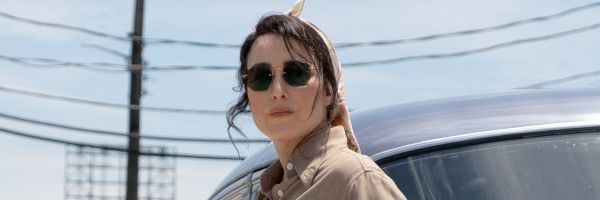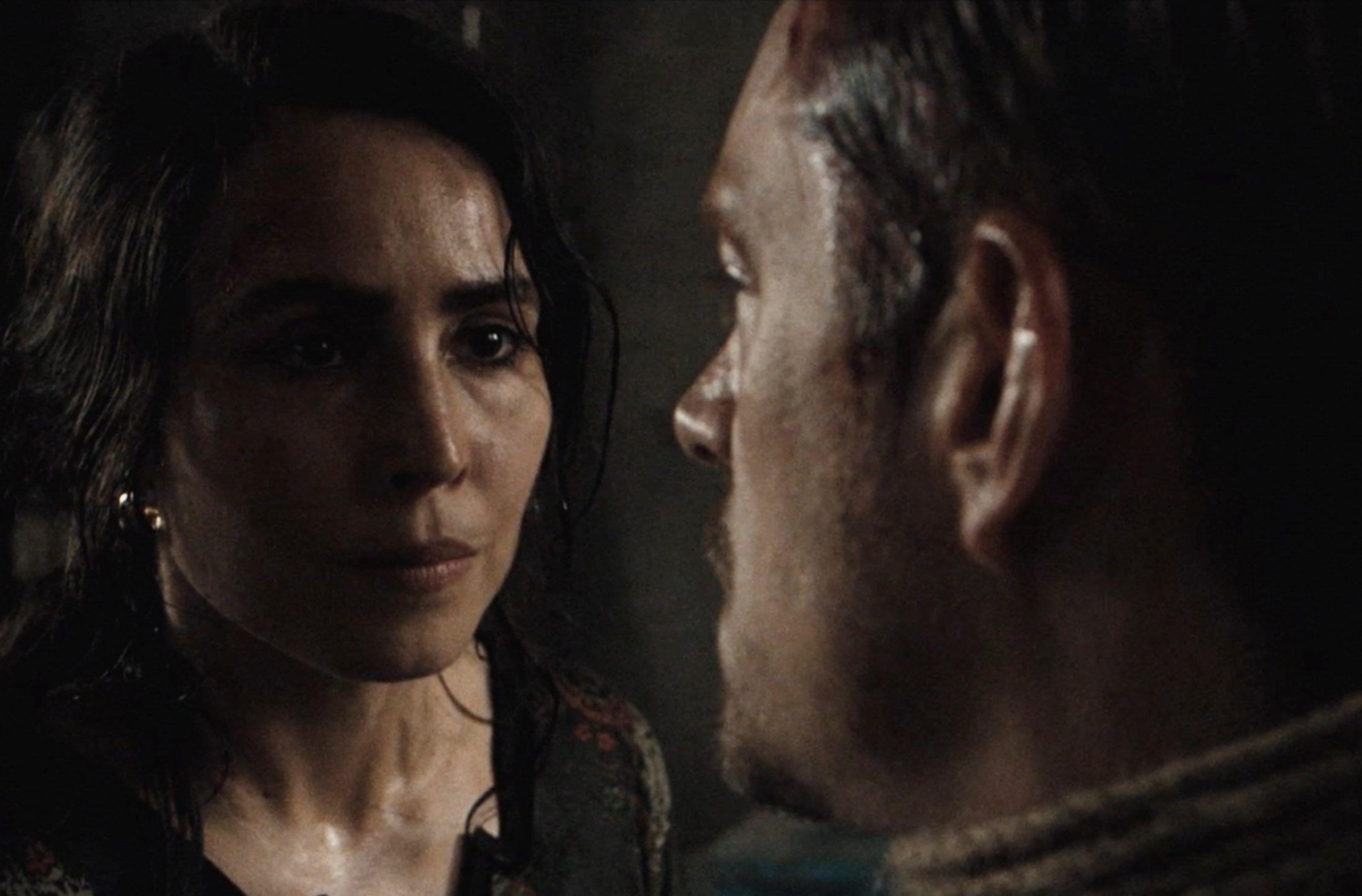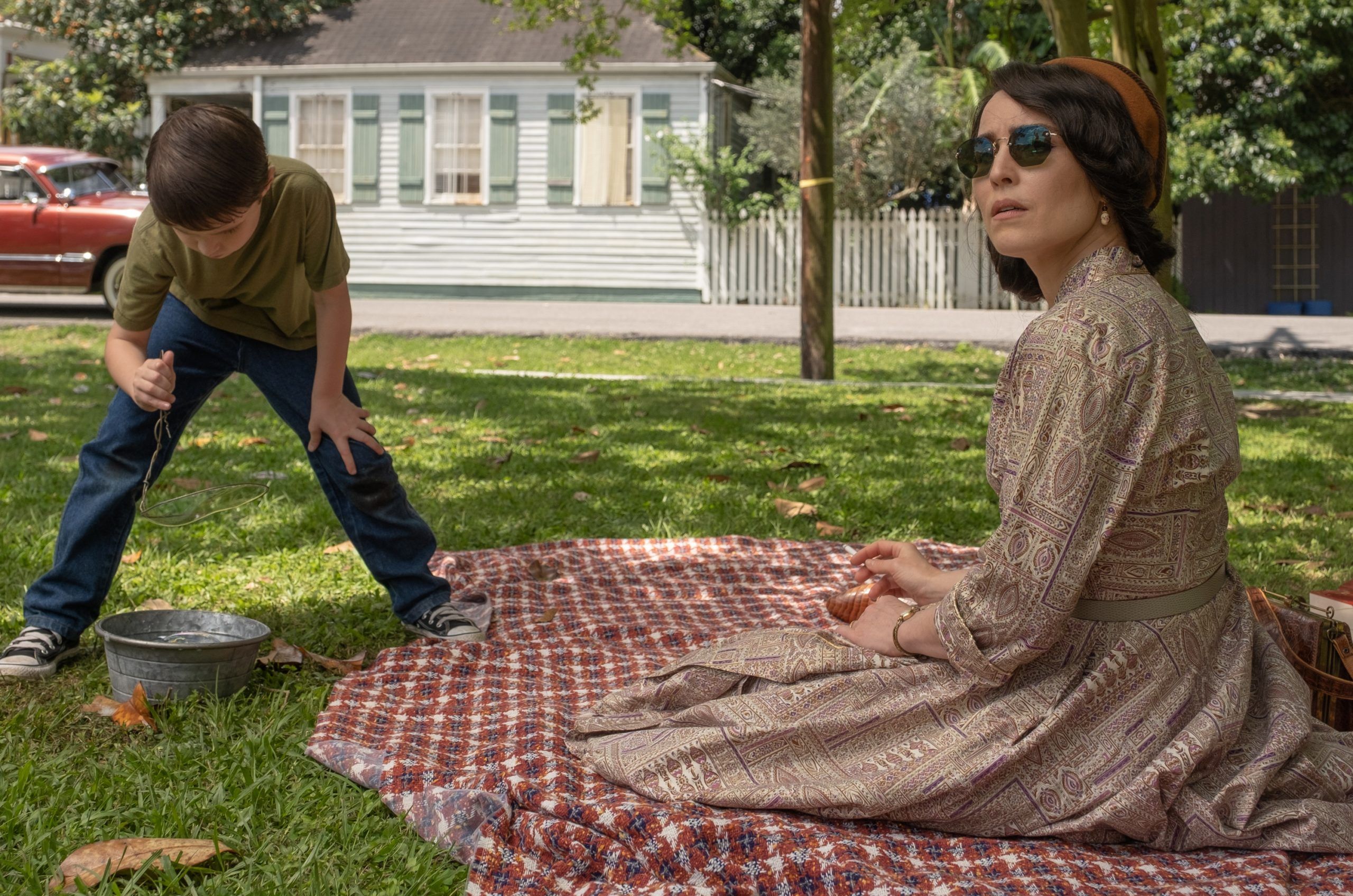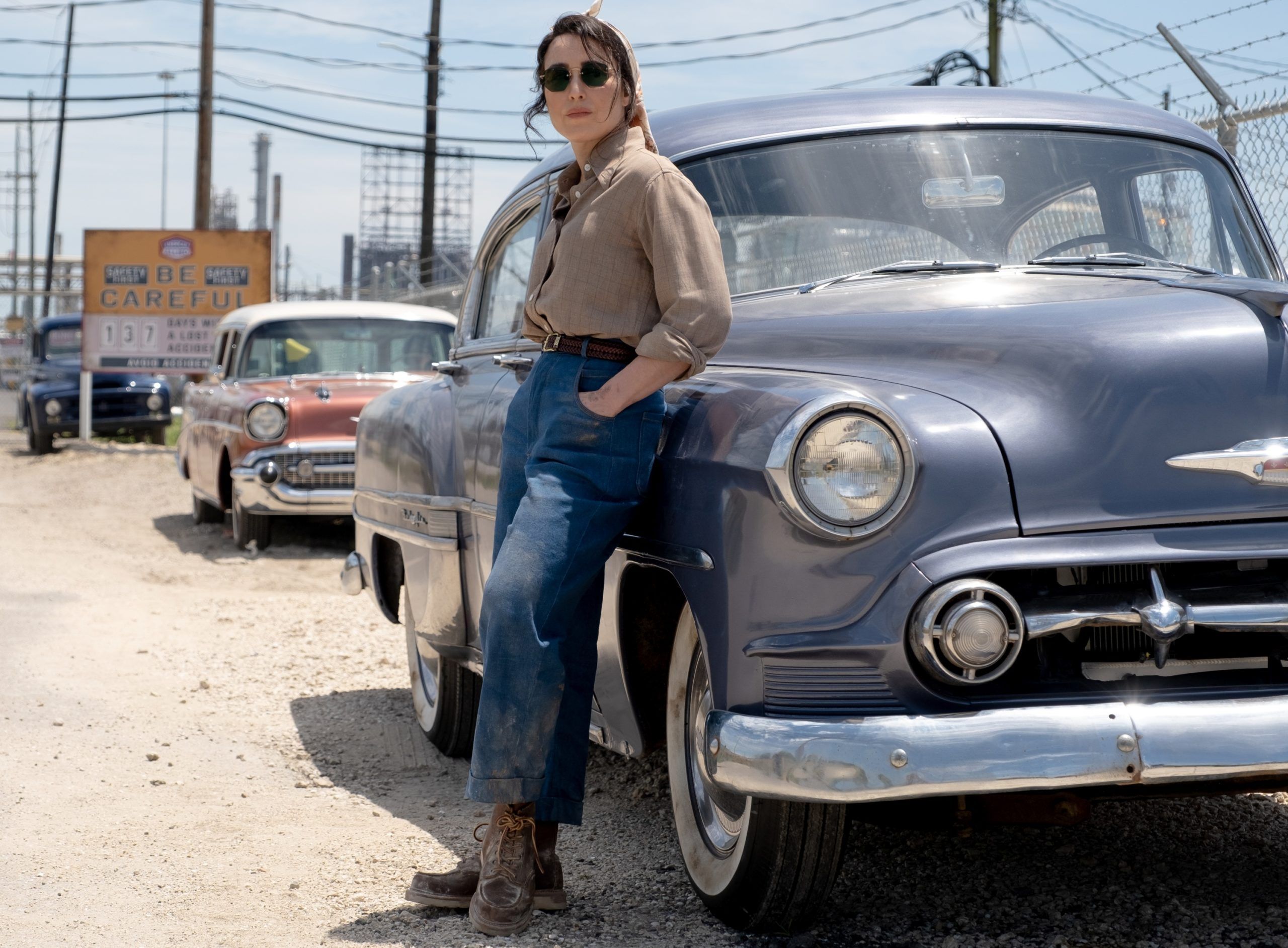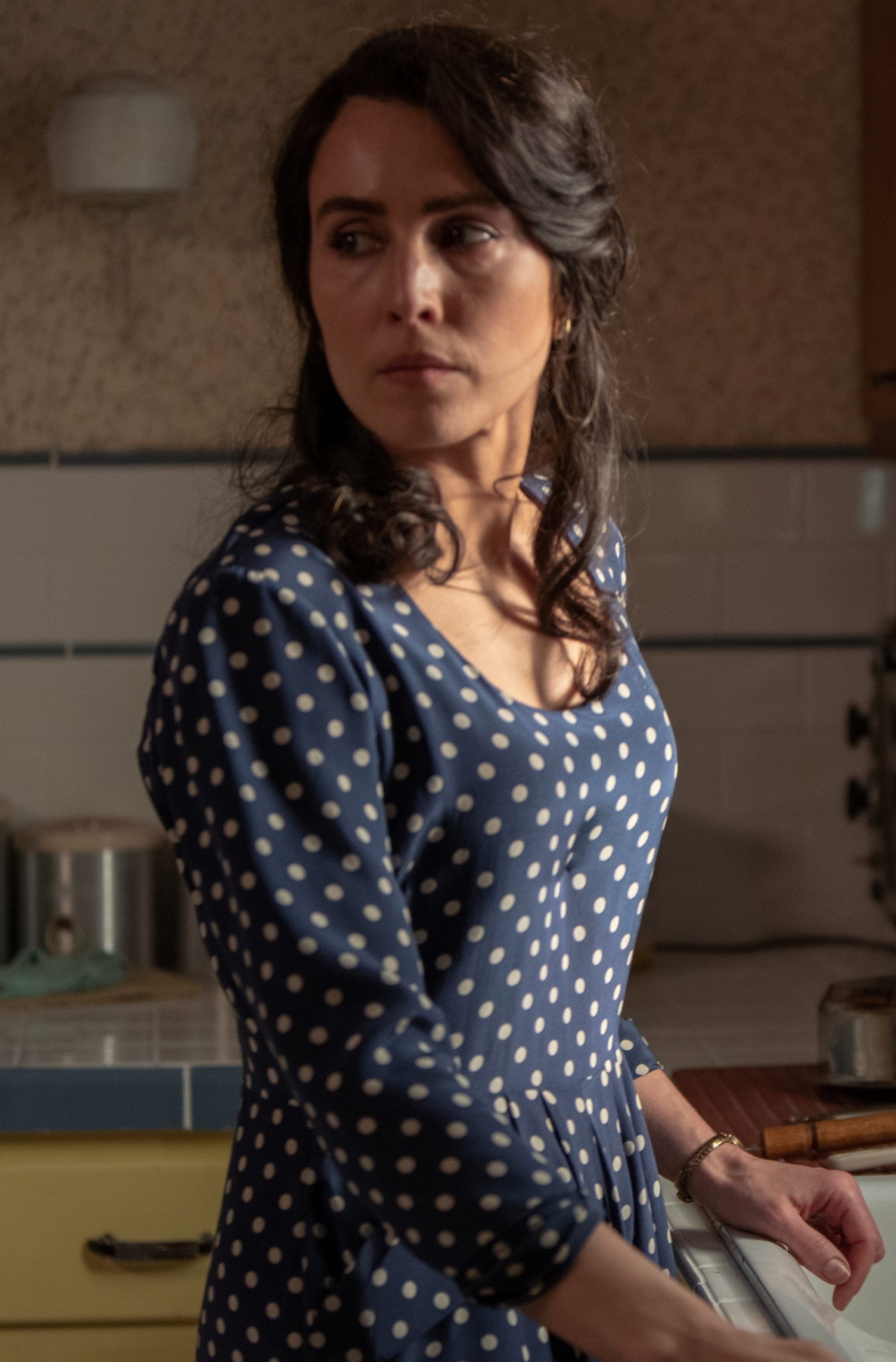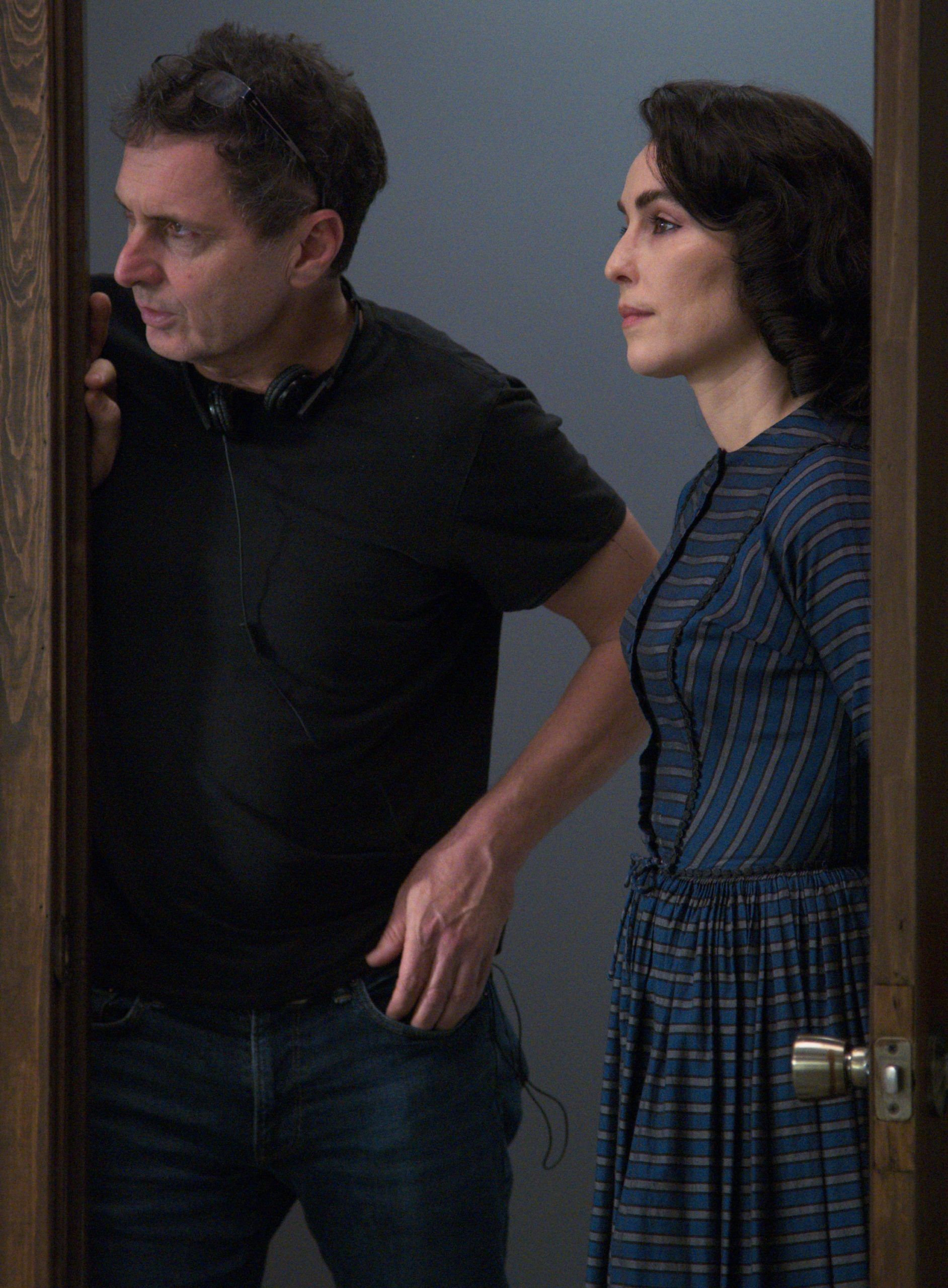From director Yuval Adler, the dramatic thriller The Secrets We Keep follows a Roma woman named Maja (Noomi Rapace), who lives a cozy life in post World War II suburbia with her American husband Lewis (Chris Messina). When she unexpectedly catches a glimpse of a man (Joel Kinnaman) that she believes is the German soldier who brutalized her and murdered her younger sister, Maja decides to do whatever it takes to get discover the truth.
During this 1-on-1 phone interview with Collider, actress Noomi Rapace (who is also an executive producer on the film) talked about how involved she was in making the story more personal, why she wanted to re-team with longtime friend Joel Kinnaman on this project, how physically and emotionally challenging this shoot was for both of them, and figuring out the ending. She also talked about breaking the typical Hollywood mold, whether she’d want to do a comic book movie, and why acting is her oxygen.
Collider: This was a script that you got and wanted to develop, so you reached out to the director. What was it about the script and about the director that made you want to make this and be so involved in it?
NOOMI RAPACE: Joel Kinnaman and myself were looking for a project to do together. Our management, at the time, gave us this script, and we both read it and totally fell in love with the premise and the core of it, with the question of forgiveness and trauma, how to move on, whether healing is possible, and revenge versus forgiveness. That was something that I had always wanted to investigate and go into. And then, it took us a couple of years to find the right director and I met several directors. The project went to sleep a little bit. Joel was out filming other stuff and I was filming other things, but I just couldn’t let go of this, so I just kept pushing for it.
And then, when I met when I met (director) Yuval Adler and we started talking, I was shooting Jack Ryan in New York. We just started talking about what kind of film this is, what the core of it is, and what we really wanted to tell. He started asking me a lot of really personal questions and I just felt an instant connecting tissue with him. We’re both outsiders and foreigners in the States and we have a perspective on things that was quite similar. I just fell in love with him, straight away, and I called the producers and Joel, and I was like, “We have our director.”
From that point, me and Yuval reworked the script into something that was more personal. We changed Maja from being a Jewish woman to being a Roma woman. That was something that was very dear to my heart. For a long time, I’ve wanted to tell a story about the Roma people, and this felt like a great opportunity to shine light on a people and a person from that culture that we don’t know much about. We all know that a lot of Jewish people suffered and died, and that Hitler did worse than imaginable things to them, but what he did to the Roma people, very few know. We started digging deeper and deeper into the story and did a lot of research, and made it closer to my heart.
Joel Kinnaman was originally going to play your husband in this, but then ended up taking on the role of Thomas. At what point did that switch happen and what led to that switch? Did you decide that you just wanted to beat up on him a little bit?
RAPACE: It came quite late. Me and Yuval were working and digging deeper into this, and Joel was not really a part of that process. So, when we have the first new draft, Yuval said, “I really see Joel as Thomas, or Karl. I wanna talk to him about it.” And I was like, “Dude, I love that idea.” Me and Joel are both Swedes in America. We have this perspective. We’re united somehow in being the outsiders. The scenes between Maja and Thomas are just so explosive and sad and disturbing that it made total sense. And then, since we also changed my husband into an American, it shifted the story of it. So, when Yuval spoke to Joel about it, he was like, “Yeah, I love it. Yes, one hundred percent.” The story just took that turn, and it felt like the most natural thing.
What is it like to essentially torture a friend of yours? Does having a prior relationship with each other already make that easier to do?
RAPACE: Yeah. We trust each other, we love each other, we’ve known each other for a long time, and we’re close friends. That allowed us to dig deeper and explore those emotions and dark places with less of a safety net. We could allow ourselves to be ugly and wrong and do takes that might not be one hundred percent. When you feel like you have each other’s backs, you can be more brave and investigate deeper into all of these complex places that are really uncomfortable to be in, for both of us.
You’re essentially pistol whipping him, kidnapping him, torturing him, and tying him up. Was that more difficult for you physically, or was that more difficult for him physically to go through?
RAPACE: I would say that he probably suffered more, physically, but Maja suffered emotionally. It was strange because I was a producer on the film, so I was going between putting the producer hat on. I was working on the scripts on the weekends and on the schedule and being a problem solver, and then going right into the deepest ocean of emotion, as an actor. That became almost a bit schizophrenic. I totally dug into my soul. I was dreaming really twisted, really dark, really horrible dreams about Maja’s past. And I dreamt a lot about my sister, that I’m very close to. So, when we created the backstory for Maja, that breaking point in her life came very much out of my own worst nightmare. If someone were to hurt my sister, that would be the thing I would have the hardest time forgiving. My son and my sister are the two closest people to me, in the world. That sat under my skin. So, I would say that maybe I suffered more. It was more painful for me emotionally, and physically, it was not easy for Joel. He was tied to that chair and it was pretty intense
When you’re having dreams like that, when you finished filming, do the dreams just stop?
RAPACE: It came in waves. I felt like I was drowning, and both me and Joel were slowly sinking in that basement. It became so obvious and clear to me that Maja starts from a point of rage and hate, and she wants to seek revenge, and then it moves deeper and deeper into this need and desperation for the truth and to understand what happened. She just wants to put this memory puzzles together and heal, and the only one who can provide her with this information that will put the pieces together is Thomas, so she needs him and doesn’t want to kill him. She thinks that she wants to kill him but she actually just wants to mend and heal, which is an incredible journey.
How did you feel about the ending of this film? Did you go through a lot of different versions before settling on this ending? Was there a lot of conversation about what the ending of this should be?
RAPACE: Yeah, we spoke a lot about the ending. We wanted it to be real and also to shine light on the complexity of violence and how violence feeds violence. If you drag someone into your brokenness and trauma, you create a trauma on top of the trauma, which means that it’s not just you in the equation anymore. It’s about guilt and the spiral of destruction. We wanted to find an ending that had a bitterness. It’s love but it’s very broken love. It’s not an easy ending and it’s not the most expected. It took us awhile to reach the point where we felt like this was the ending that we really wanted. It really felt like the story was telling itself. It was very strange. Yuval came on board in November, me and him worked on the script, we had our first draft in January, and we started shooting in April. It was totally a roller coaster. We jumped in and everyone involved was working from a place of passion for this passion but also the passion towards those individuals in the story and to tell this story about Maja and Thomas and Lewis. It was just this ride. It felt like we were on an expedition, searching and exploring together and slowly losing our minds.
You’re a part of the Hollywood industry with the work that you do but you don’t really fit into the typical Hollywood mold. Is that something that’s been very important to you and is that something that’s been difficult to maintain, throughout your career?
RAPACE: I think that the typical Hollywood mold is unmolding itself. More and more, we can see collaborations worldwide. The Asian film industry, the European film industry, and the South American industry are all moving closer to each other. I’ve always felt that it’s really important to stay true to yourself and your own navigation and your dream. It’s about how you want to tell stories and what stories you want to tell. I don’t wanna tell the stories about the perfect, beautiful people, and the cute girl or the sexy girl. I find that quite boring. I’ve always been a big fighter for truth, for minorities, and for the emotional and psychological cracks in us, to unravel the complex hard shell that grows in us when something happens to us. We build this big emotional skin around the event.
If you start to unfold that, what is that, how does that look, and why did you become the person you are today when your audience meets you? To be able to do that, you can never work from a place of vanity or be like, “This is strategic. Now, I should play a character that’s the girl next door, or is the funny one.” I don’t build by career that way. I want the stories to live their own lives and my characters to guide me. As a producer, I feel that I’m obliged to tell stories that are sometimes uncomfortable but that are very important. Hollywood has very much embraced me, since day one, which is as shocking today as it was when I first came, and I still don’t understand how that happened. I’m like, “I’m this weirdo who doesn’t really belong anywhere. How come I feel like I belong here? I’m accepted. You let me play and investigate and come in and do it my way. I feel very blessed, to be honest.
At the same time, could you ever see yourself doing one of these comic book or superhero movies? Do you feel like there’s something different and interesting that you could bring to that kind of world?
RAPACE: It all comes down to the director and the story. Rob Pattinson is a good friend of mine, and I’m very, very curious to see what they do with The Batman. And Zoe Kravitz is a friend of mine, too. To take that film as an example, it feels like they are going deeper and darker. It’s not as glossy and glamorous and cute and as packaged as it used to be. I love Joker, for example. I feel like it’s moving towards something more real and more complex. I find it really fascinating to see how the very commercial side of my industry and the more indie side is getting married, more and more. I can see myself, in the right situation with the right director, give birth to a character in that universe.
It really does feel like you can dig deeper into one aspect of one character like that and really find something interesting there that isn’t just big and flashy. That makes for a really interesting character study, no matter what the character is doing.
RAPACE: Exactly, yeah. I remember when I started working with Will Smith on Bright and I was talking to (director) David Ayer about Leilah, my character, who is she so evil and so dark on the surface. She’s rotten and so sharp inside. She’s like an animal. And then, when you start to unravel her, I asked myself, when did her heart break? How did she become what she is today? What are her sorrows? What is her pain? As soon as you understand the pain of a character, you will start to defend the character, as an actor. Even the worst character on paper, who might not feel so much, I can always add life and dimensions to them. I loved Leilah. She was probably one of the most fucked up characters that I’ve played but in the end, I totally saw her perspective and I saw it from her eyes. Even in big commercial projects, that is being allowed nowadays.
Along with working with Joel Kinnaman a couple of times, you’ve also worked with Tom Hardy a couple of times in the past. Is he’s someone that you would also like to work with again? Would you like to find another project that you guys could do together?
RAPACE: Oh, one hundred percent. I adore him. We did The Drop in New York, and we went straight to Prague and shot Child 44. We basically saw each other every day for six months. He’s an amazing actor and we were on a journey together, where I felt like he was my best friend and we were like two kids, holding hands and jumping off of a cliff, and just hoping that we would develop wings on the way down. I would love to find something with him in the future, for sure.
You were quite young when you started your acting career. As you continued to work and do roles, what were you hoping for with your career at the time, and how has the way that it’s turned out compared to what you had thought it could be?
RAPACE: Oh, wow. I always knew that acting was my oxygen and that I had to do it. That was my way out of my emotional cave. I was so locked up and so shielded and protected that I built this very hard surface, as a protection towards a lot of things around me. I didn’t really grow up under the best conditions. For me, acting and filmmaking is one of the most beautiful things. As an actress but also as an audience, watching films from early age was freedom for me. Everything is allowed and it has all possibilities. It’s the most honest voice. There are no lies. In the best films, there are no lies. It’s only possibilities. I also knew that I need to be more brave than I felt was possible to be, and that I needed to challenge myself and get out of my comfort zone.
When I moved out of Sweden and moved to London, I didn’t know anyone in London. I was shooting Sherlock Holmes with Robert Downey Jr. and Jude Law, and I was like in the middle of my divorce and was so scared. I hardly spoke English and it was just too much. I didn’t know if I would land on my feet. I thought I might crash and never be able to stand up again. And right in that moment, that’s what I live for. That is what acting is for me. It’s that connection where you’re so alive and so awake and everything matters. I always knew that I would put myself in situations where I would have to keep changing because I believe in change, more than anything. I believe that change will constantly guide you and lead you to your next step in life but to be able to change, you need to make decisions. It’s all connected to decisions. As an actor, director, or producer, you make constant decisions. Every day is about decision. That, for me, is the engine in life. Acting and being in this creative process of filmmaking, is not just a job for me. It’s my life. I love it. It’s my strongest and biggest love story.
The Secrets We Keep is in theaters and on VOD.
Christina Radish is a Senior Reporter of Film, TV, and Theme Parks for Collider. You can follow her on Twitter @ChristinaRadish.

